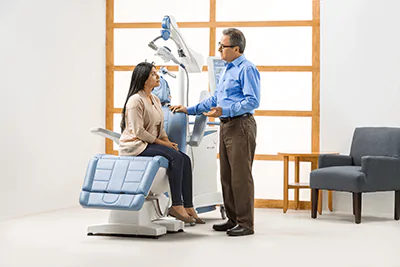Continued Destructive Behavior Despite Negative Consequences
Hey, so the other day I was in DUI Court. A couple of professionals and I were there helping out a client that is struggling with multiple DUI offenses. The process was interesting and kind of frustrating. It wasn’t just one person that was there for multiple offenses. This was an entire courtroom, and there was person, after person, after person that got multiple DUIs. The questions and comments I kept hearing is, how can this person continue to do this, despite these consequences? To me, there’s way more questions than just, how? It’s frustrating, how can someone get more than one? How can someone get one DUI, let alone multiple DUIs? And then they start to pass judgment, that they’re stupid, that they don’t care, they’re inconsiderate of other people.
What I’m looking at is, nobody wakes up and says ‘hey, I’m gonna go get intoxicated and drive and think I’ll be fine.’ It’s more of a pattern of stuff that seems to happen, and, then there’s unfortunate circumstances. The question is, even though bad things happen, why does it continue to happen?
Well, we need to ask a lot more questions. Meaning like, what happened to this person that caused them to behave in this manner? I’m not talking just about DUIs, but maybe using substances. Are they using it for a specific reason? Did something traumatic happen? Did they have some emotional distress?
Another question would be, why? Why do people continue to use despite the negative consequences? How is it that they continue to engage in self-destructive behavior, even when the consequences are significant? So let’s start to look at this, because too many times people give opinions: Oh well that person’s an alcoholic. Or, that person’s a drug addict. They don’t care about others, nothing matters to them.
Looking Beyond the Symptoms of Alcohol or Substance Abuse
I honestly don’t think that could be any further from the truth. We may get frustrated when we have a loved that is abusing substances, or doing something that’s totally self-destructive. But, I will tell you that they probably are more angry and upset with themselves, than you feel about them. Or who’s ever, pretty much passing judgment. So we want to get away from judgment. We need to get to understanding what’s driving the behavior so we can get people help. It’s not just the individual that’s struggling. Family members, friends, employers, the entire community is impacted by these things. There’s a lot of people suffering, not just one. We need to look at everybody involved.
How do We Develop Poor Coping Skills?
Let’s talk about what causes challenges? How is it that people get into these patterns with substance, use, abuse, and dependence. Think about this, in life there can just be normal circumstances. But, maybe something negative happens to me. It’s just part of it. I really don’t wanna deal with the emotionally distressing problem. It’s too painful. So I have a drink. Maybe I smoke something. Maybe I take a pill of some sort. Magically my mood changes, that what ever it was is no longer bothering me.
Well, what the brain learns is, hey, there is a solution. The problem is, it is a solution until it’s no longer a solution. Eventually, the quick fix becomes a problem. But you think about this, okay, it worked once. Again, I never resolved the problem by having a drink or taking whatever substance. All I did was kind of put it aside and numb the effects. That would be like, oh I got a broken leg and I’m gonna aspirin, morphine, or something and block the pain that’s coming from my broken leg. But, I never repair the leg. It just gets more and more damaged.
Well kind of think about that emotionally. So, you know, people struggle with emotions. I don’t necessarily have to get intoxicated, but I use something that improves my mood. I start to get in this pattern. Every time something bothers me, I do something that improves my mood. Well, it gets to a point where it stops improving my mood, it never removes the problem. I think you all know this, it’s fairly common. Then the problems start to build up and they get more severe.
So let’s say, I’m self-medicating. My intention may be to just to go out and relax. I want to have a good time and visit with friends. But I end up drinking more than I intended to. My judgment is now impaired. I decide to get in my car and drive home. The next thing you know I get pulled over and arrested. Well, that is gonna be very painful for me. And, what is my coping skill? My coping skill is to go back and medicate that pain. So I start to repeat the pattern.
Emotions Behind Alcohol or Substance Abuse
So let’s think about someone who has multiple factors going on. It could be arrests, loss of a job, relationships, or other stressors. It doesn’t just have to be an arrest for driving under the influence. People continue to engage in these self-destructive patterns. But, not because they don’t think about it and it’s not painful to them. It’s because it has become, almost habitual, and their brain just kind of knows this. The brain is wired to think this will get rid of the problem. It only gets rid of it in the moment until it makes it bigger. As the problems continue to mount, these people are totally struggling. They are in a lot of emotional pain.
They are probably more angry, self-critical, and down on themselves. Not only that, they probably think about quitting throughout the entire day. Meaning they probably think about it up to the moment they’re about to pick something up and drink again. So we have this pattern that is totally self-destructive. It’s influencing a lot of people around them. What are some of the things we can do to address that?
So I didn’t say it yet, but for those of you that don’t know me, I’m Dr. Jerry Grosso. I’m the Clinical Director at Nsight Mental Health & Wellness, in Newport Beach, California. What I’m doing here is I just want to answer some questions. While it may be common knowledge to me, because I’m around it all the time, it may not be common to a lot of people out there. Really what I’m hoping that will happen here, is that we can better understand what is going on when we have a family member, friend, or loved one that is struggling with continued self-destructive behavior. It doesn’t necessarily have to be dependence on substances. I just use that as the beginning of this video because I was just around it the other day.
When I was around professionals that were, I think it’s human nature, just passing judgment, it caused me to want to do a video on it. Because what we see on the surface is often not really the issue. The question is, what happened? How did they get into this position? Why does it continue to occur? How can we intervene to change things for them?
How do I Help Someone Who Continues to Struggle with Alcohol or Drugs?
So I do want to cover three things for you all here. These are things we can do to help someone.
How do I Be Supportive
We need to be supportive with the person, but we also need to be direct. It is human nature to try to avoid difficult conversations. Right? I don’t really want to tell a spouse or loved one, that their drinking, or behavior has become a problem. I especially don’t want to tell them their issue is a problem for me or other people. We have a tendency to try to avoid that, because we think it’s just going to be argumentative.
But here’s the thing, this conversation is going to be difficult no matter when you have it. Ask yourself if it is more difficult before bad things happen, or after? I mean do you want to wait until someone loses a job, gets a divorce, ends up homeless, or ends up in jail? Then decide, we need to have this conversation? Or, do we get out in front of it and say hey, let’s look at where this is already impacting things.
You have to remember to be supportive. Because their immediate reaction is going to be defensive. Like, ‘I don’t have a problem, I can handle this. You’re making a bigger than it needs to be.’
How do I be Direct?
I’m going to bring it back to me. Like, look, I care about you, I care about me, and I care about us. I’m just being honest with you. Whether you see it or not, I’m letting you know I see it, and this is how it’s impacting us. So, what I’m doing is, is I’m being direct. I’m having a conversation upfront.
I can ask them, look, do you wanna have this conversation now? Or do you wanna have it when things start getting worse? Because my concern is that when things get worse, it may be too late.
In the twelve-step community, you hear a lot that people have to hit their bottom. That may be true, to a point. I’m taking the understanding that things have to get really bad before the person decides that there is a problem and that they need to stop.
Well, maybe I bring that bottom out quicker. Before things get too bad. If I’m in a relationship and I tell my significant other, family member, or friend, that this is a problem. I can’t let this get any worse. Because I’m not going to continue to participate in this dysfunction and madness that is creating a problem. Perhaps, the end of the relationship now. So I might say, I’m going to end this right now. I’m not going to go through this with you. It’s going to be too painful for you and too painful for me. I don’t need it to get any worse than it is right now.
So again I want to be direct, but, I want to be supportive. I’m loving and I’m caring. But I’m gonna be direct, I’m gonna be honest with them.
How do I Set Expectations?
I need to clearly identify what the expectations are. This is where I want to lean in to the conversation, and not start backpedaling. It’s one thing to tell people, hey this is an issue. It’s another thing to say to them, look, this is my expectation. You would have to decide, for you, what those expectations are.
But, they need to be significant enough that they create a change. Someone can say, you need to stop drinking, I’m not tolerating anymore drinking. there is a big divide, potentially, between what someone thinks the problem is and what you think it is. So I would need to be very clear about what my expectations are. I do not want drinking negatively impacting any part of our life at this point.
And it could be as simple as saying, “hey after a couple of drinks, you are no fun to be around. I don’t enjoy your company anymore. The conversation deteriorates, or your mood changes, and this is not enjoyable for me.” This is what I need from you.
I don’t have to say, “hey you’re an alcoholic and you need to stop.” But I’m going to be very clear. That there is a point and I’m gonna define the point for you. I’m not going to keep doing this.
What I am saying may sound harsh, but, that’s not my intention. What I’m trying to do is make it clear, that I’m supportive, I’m caring, and I’m trying to prevent self-destruction. Instead of kind of backing up and having you tell me that it’s not a problem and it’s fine. I’m not going to just say okay whatever. I’m gonna tell you I determine what’s painful for me. You determine what’s painful for you. So let’s have an open conversation and be very clear about what we expect from each other.
We work through these issues in a productive problem solving way. But what I wanna do at this point is I have to lean into it, not back up. It doesn’t mean I need to be argumentative, and it doesn’t indicate I need to be mean about it. I need to be firm.
What is the Importance of Having a Plan for Success?
So, the third things is that I have to formulate a plan. And, it needs to have a long term goal. I’m going to identify it this way. I can be supportive and direct. I can be assertive, lean into it, and make my expectations clear. But, we also need to have a plan. It’s just not a plan to get through the day. You’re not going to use today, tomorrow, or next week. That’s not the issue. The issue is, what is our plan that would include long term success. It may be professional help.
Someone might say well I don’t need help. Why would you turn down professional help if there’s someone out there that could make the path easier. It may not be just the substance use that’s the problem, it could be our relationship. It could be other stressors and how we’re not working as a team. There could be a lot of factors that are going on here. So we’ll both assume, or, if it’s a family, every member can assume responsibility. We all have a role in this. Let’s get professional help.
The other thing would be thinking about what is the future is going to look like? Not just today, and, I’m kind of reiterating this, not just today, but what’s tomorrow going to look like? What’s next week going to look like? What’s it going to look like two years from now? How do we create healthy relationships? How do we manage emotional distress when it comes up? Because in life, you know it’s gonna come up.
How do we work as a team to problem solve? You know, we can say, well, it’s not a big deal, and that may be individually true. There’s personal growth and development people can do. However, in this situation, we’re talking about someone engaging in self-destructive behavior. They do have loved ones that care, but maybe not know how to intervene. I have to be direct. I have to be assertive and clearly identify my expectations, lean in to this. Then we need to have a long-term plan.
It’s going to take two things to make this work. You are going to have to invest time and you are going to have to put forth effort to make things better. So, that part we can transcend into really any type of relational issue. This doesn’t have necessarily be just substance abuse, or legal consequences from continued use.
In Closing
The purpose of this video is I just wanted to start sharing some more knowledge with you. There are a lot of difficulties that people have out there. They may develop these maladaptive coping skills that become very self-destructive. It’s not their intention to self-destruct and cause problems for themselves or other people. They have become stuck in a pattern where the things they engage in is not productive. It’s avoid, avoid, avoid. It’s pain, pain, and more pain. I keep reaching for the same solution, which isn’t a solution at all. It’s avoidance and it never starts to address what the underlying issues are.
So, if we were to sum this all up, I just wanna make sure I have all the parts. We don’t wanna pass judgment. We wanna find out why things are happening, and what’s causing it to continue to happen.
So, just to let you guys know, there’s professional help out there. Don’t be afraid to go get it. At least get information. If you see things building, and you’re kinda concerned that there may be an issue with substance use, you wanna look at a supportive, loving approach. And, what type of intervention do we need to do. And I’m not talking about like, the intervention process that people do with people struggling with substance abuse and addiction. I’m talking about how do I intervene as a loved one.
If my intervention’s not working, what do I do differently. I don’t just give up. I need to look at, okay, maybe I need to approach this a little bit different. Maybe I need to talk to a professional to get help with this. I need to constantly look for a solution. I’m gonna put time, I’m gonna put effort, and I’m gonna be focused on the solution with a long term plan.
So thanks for watching today. I’m Dr. Jerry Grosso, Nsight Mental Health & Wellness. If you liked this video great, give us a like. If you don’t like it, or, if you just have questions, please send them to us at info@nsightrecovery.com.
I’m more than happy to answer your questions. I can do specific videos on topics that you have interest in. The goal here is to really get rid of this myth of mental illness, addiction as this taboo subject. It only happens to some people. It happens in every family, okay. It impacts everybody. So, no different, and you’ve heard me say this before, than a common cold, you know, stuff comes up in life, I’ve gotta be able to deal with this stuff effectively. I need to address it, not avoid it. I need to find solutions, not medicate it, or try to get away from it, okay.
So, until next time, be healthy and again, if you have any questions just reach out to us at Nsight. I’m Dr. Jerry Grosso. You all have a terrific day. Thank you.[/vc_column_text]
References
Addiction, Drinking Behavior, and Driving Under the Influence
Frank A. Sloan, Ph.D., Lindsey M. Chepke, J.D., Dontrell V. Davis, M.A., M.S.
https://www.ncbi.nlm.nih.gov/pmc/articles/PMC3976702/




Pingback: Getting Past Shame & Guilt - Nsight Mental Health & Wellness
Pingback: Understanding Feelings Video - Nsight Mental Health & Wellness
Comments are closed.